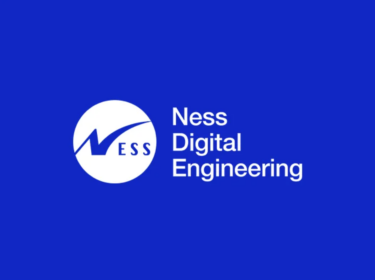Over 13 million Americans are avid fans of business podcasts, according to the Nielsen Marketers’ Guide to Podcasting, published in 2018.
Ever since a journalist coined the term in 2004, podcasts have gone through several stages of development, which recently culminated in the transition to the era of “big podcasting.”
When it comes to “big podcasting,” the figures speak for themselves, a study published by media researcher Edison last month revealed. As of the start of 2020, approximately 104 million US citizens (aged 12 and over) are now consuming podcasts regularly.
To put this into perspective, the current number of podcast listeners is more than double the amount of US citizens who subscribed to Netflix last year, which was 61.04 million, according to Statista.
Part of this recent surge in listeners is down to Spotify’s $340 million purchase of the podcast studio Gimlet media and podcast publishing platform Anchor, last year.
This purchase, according to Spotify CEO Daniel Ek, was part of the music streaming service’s game plan to “become the world’s leading audio platform.”
But, little did he know, he had just opened up a window of opportunity for large corporations to develop their own game plans and profit from the podcast massification that was about to happen.
A marketing tactic
A corporate podcast can increase a business’ chance of attracting prospective clients and bringing in leads through its ability to fit into their busy schedules. According to 2019 research by Podcasts Insights, for example, 22 percent of podcast listeners listen in the car.
Podcast listeners also tend to be a quite engaged and loyal audience. The same research found that nearly half of podcast listeners will listen to the majority of each episode.
For Publicize PR, a startup that believes its approach to digital PR is “forward-thinking,” a podcast was the logical next step in developing its marketing strategy.
“We genuinely believe that we’ve got something unique to offer to our listeners,” said Sam Brake Guia, host of The Sociable‘s Brains Byte Back podcast and coordinator of Publicize PR’s The Loudspeaker podcast.
The weekly podcast about scaling startups — whose listeners are mostly based in Illinois, Florida and New York — is produced in Medellin, Colombia.
“The Loudspeaker is a resource that anyone can access, gives potential clients an opportunity to learn more about Publicize, PR, and how to take steps to improve their own strategy,” added Brake Guia, explaining the value he believes the podcast can bring to the business.
Advertising opportunities
Not only could this be a useful way for companies to spread their brand message, but it also opens up an advertising opportunity that is guaranteed to attract the attention of a targeted niche of listeners, depending on the podcast topic.
For example, 69 percent of those interviewed by Music Oomph for their 2020 podcast statistics claimed that podcast ads made them aware of new products or services.
“We want to be a resource that entrepreneurs, founders, and people interested in PR can benefit from on a weekly basis,” Brake Guia said.
As an easy way of constantly linking back to the business, podcasts can also be a handy way of boosting a company’s SEO ranking, which explains why Publicize, along with the “big five” consulting firms Deloitte, KPMG, McKinsey, Accenture, and PwC — are among a growing number of businesses that have launched their own.
Internal company podcasts
Dell, which employs almost 140,000 people worldwide, uses its corporate podcast as a means of communicating information with its own employees.
Aware that the most effective method of communication is no longer necessarily via email, the tech company told Quartz about its plans to use its podcast to share updates, interview executives and explore product specifics with its staff members.
The jury is still out, however, on how effective internal podcasts can be.
In a case study that focused on Verizon Communications business podcast The Wall Street Journal found that it is actually much more difficult to generate high levels of engagement with listeners who are also employees. What’s more to say other than work content “gets boring fast.”
But the future of the corporate podcast is anything but.
What businesses have essentially done is repackage the age-old tactic of audio advertising into an attractive, downloadable format.
By positioning themselves as experts on any given topic, businesses are able to create content whilst simultaneously — and discreetly — advertising their services.
Full disclosure: Publicize subsidizes The Sociable.
Preparing for an AI future with McAfee VP Candace Worley: podcast












